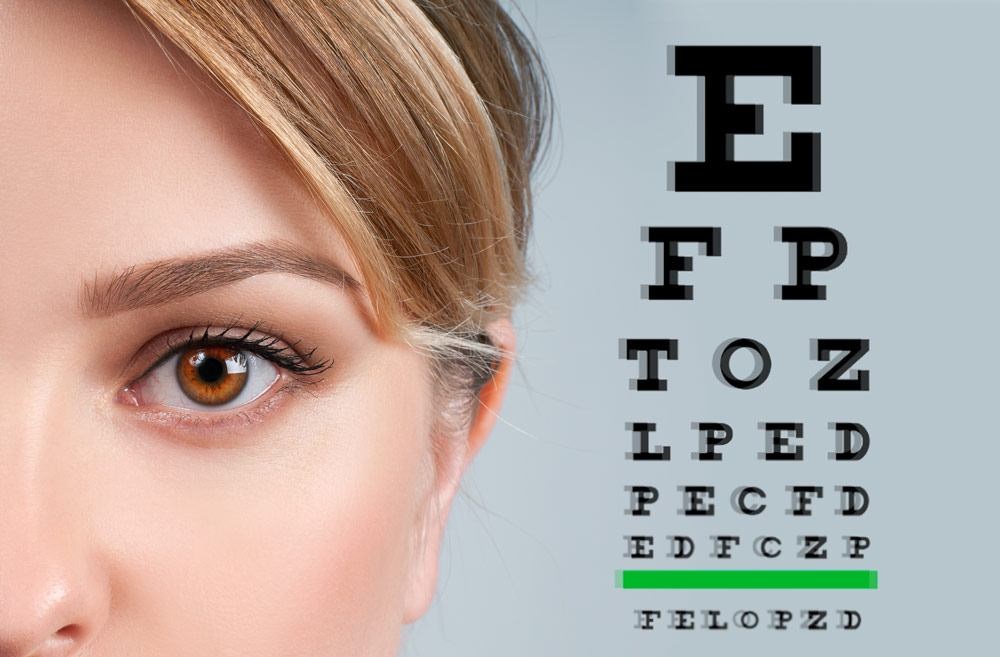
Having diplopia leads you to perceive two images of the same thing. Double vision is a popular term used to describe this phenomenon. An underlying disease is usually to blame for this eyesight issue. Identifying and treating the underlying problem can help you regain your vision and prevent further symptoms.
There are two forms of diplopia, i.e.,
- Monocular Diplopia
- Binocular Diplopia
Diagnosing your type of diplopia is as easy as taking a quick eye exam. Cover one eye when double vision occurs. Binocular diplopia is when double vision disappears when one of the eyes is covered. When the affected or “bad” eye is covered, the double vision disappears; nevertheless, the double vision reappears when the unaffected or “good” eye is covered.
An eye condition known as monocular diplopia might be the result of a malfunction in one of your two eyes. Binocular diplopia might be caused by a problem with your brain or the nerves that go to your eyes. Your doctor can begin investigating the source of your double vision once they’ve determined which type you have.
Causes of Monocular Diplopia
The occurrence of monocular double vision is rarer than that of double binocular vision since a condition with only one eye causes it. People with monocular diplopia report that one image is transparent while the other is washed away.
Cataract
A cataract causes the lens that covers your eye to become cloudy and foggy over time. Double vision and other vision issues may result as a result of this. Double vision can also be caused by other problems with the lens, such as its position or shape.
Dry Eyes
Lubricating fluids are continuously produced in your eyes, and blinking or rotating your eyes is more pleasant when using one of these substances. A lack of fluid can cause stinging, itching, and blurry vision.
Severe Astigmatism
Blurred and double vision can be caused by an eye’s asymmetrical shape and curve.
Keratoconus (Corneal Shape Changes)
Corneal thinning and enlargement, resulting in a cone-shaped protrusion, is the most common cause of this eyesight issue. Some of these symptoms include blurry or double vision and light sensitivity. Changes in eyesight can also be caused by corneal scarring or edema.
Pterygium
If you notice a fleshy growth on the transparent tissues that protect your eyelids and eyeballs, it is the primary sign of this visual problem (Conjunctiva).
A tumor of this nature is not present in this case. Only when the growth covers the cornea does it result in double vision.
Causes of Binocular Diplopia
If you cover one eye, binocular diplopia will go away. Due to a lack of coordination between the two eyes, people experience double vision. It is common for people with this double vision to claim that both pictures they see are evident.
Diabetes
Double vision and other long-term vision issues are possible outcomes of diabetes, mainly due to damage of nerves leading to vision.
Nerve Damage
Your eyes’ sensitive nerves are crucial for transmitting your eyes to your brain information. Double vision can be caused by inflammation or damage to the nerves.
Myasthenia Gravis
This autoimmune disorder disrupts nerve and muscle transmission. This can have an immediate tiredness effect on the eyes, and double vision can occur due to a weakening of the ocular muscles.
Cranial Nerve Palsy
Several of your brain’s cranial nerves are located on the brain’s surface, and these nerves might be paralyzed at times for various reasons. You may experience vision issues, including double vision, due to this. Several factors contribute to high blood pressure and diabetes.
Grave’s Disease
In children, Grave’s disease is a common cause of double vision. The eye muscles don’t operate well together. As a result, a wide range of vision issues can arise, with the potential for long-term damage to the eyes. Any infant above four months should see an eye doctor if they experience this issue.
Conclusion
Double vision can be caused by several different factors, which is why it’s essential to see an Eye Specialist for proper diagnosis. MARHAM.PK has provided the best Eye Specialists to ensure you receive the care you need as quickly as possible!
Frequently Asked Questions (FAQs)
1- What are the complications of Double Vision?
A double vision issue might arise from any one of several plausible causes. Various factors may lead to double vision, ranging from something as simple as an eyeglass prescription error to something more complex like an underlying ailment.
2- How do doctors diagnose double vision?
When you see your doctor, they’ll note your symptoms and run a few tests to see any other issues with your vision. In addition, a quick test to determine the specific type of diplopia will almost certainly be performed.
3- What are a few common treatments for double vision?
The most common treatment of diplopia may include an eye patch or cover, a corrective lens, or surgery may also be prescribed.
4- Do people with double vision fully recover?
People who suffer from double vision can often return to their normal eyesight. Depending on the underlying cause, some patients will be able to bounce back with only a tiny handful of treatment. Others may require more attention, but they will make a full recovery as soon as their doctor finds the source of the issue.


